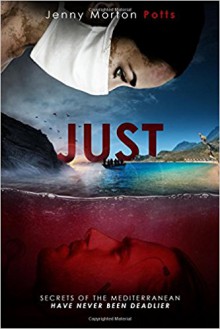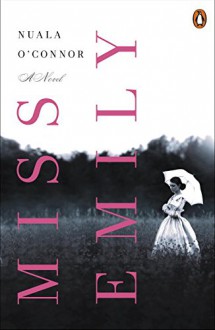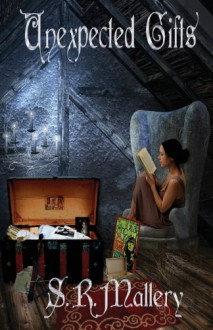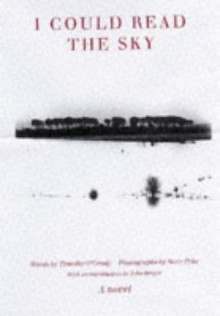
I write this review as a member of Rosie’s Book Review Team (authors, if you are interested in getting your book reviewed, you can check here) and thank her and the author for providing me an ARC copy of her novel that I freely chose to review.
I had read great reviews of the author’s previous book Hiding and when I saw that her new novel was available, I knew I had to read it. I’ve been lucky with most of the books I’ve reviewed so far. I’ve read many good books in recent times. Some have been well-written and entertaining genre books (and I love a good genre book. There is something reassuring and satisfying about reading a book in a genre we like. We know what to expect, and we can be pleasantly surprised when the book pushes the boundaries of the genre or is an excellent example of it), some I would count among some of the best books I’ve read on a topic or genre, some have managed to mix different genres, sometimes even genres that seemed hardly compatible and have pulled it off beautifully, and there are some books that have surprised me, because they seemed to keep wrong-footing the readers, challenging them, and demanding their attention. They are not for easy consumption and they do not reassure. But they can be very rewarding. Just is one of these books.
This novel is told in the third person from a variety of points of view. We have women who cannot move on and let go (of past relationships, or their past and their families), and can at times seem pathetic and self-pitying, whilst at others, they will not hesitate to sacrifice themselves for those their love (at a great cost). We have men who are ridiculously devoted to women (a close friend they’ve known forever, or somebody they’ve worked with but hardly know anything about), hopelessly romantic, and willing to go to any lengths to “save” or “help” this women (who might or might not need saving). There are friends and relatives who will keep secrets that will cost them dearly. All the characters have very distinct voices, and the reader needs to pay attention at all times, as the dialogues are dynamic, and the author rarely uses tags, so it can be a challenge to know who is talking at times, especially when new characters are introduced.
I’ve seen some comments about the book that mention that none of the characters are sympathetic. Leaving to one side personal preferences and the fact that unsympathetic or downright unlikeable characters can be protagonists as well, as long as they engage our curiosity (why are they as they are?, can we connect with them at some level, even if we don’t like what they do?), in this case it is clear that the author has carefully chosen how to tell the story, and this contributes to the way we feel. Although the book is written in the third person (and that puts us in the role of the observer), we do see things from inside the heads of these characters, and, as we all are, they can be mean, cruel, egotistical, and truly annoying at times. Personally, I wanted to slap some of the characters sometimes, but there were some I quite liked, and by the end of the book, I definitely felt I had gained an understanding of most of them. As the book evolves we discover that we don’t know as much as we thought about all of these people, and only then do we realise how carefully constructed the novel is, and how its structure creates a whole that is much more than its parts.
The book touches upon important, controversial and difficult themes, both at a general, societal level (terrorism, emigration, wars, international aid and charities, adoption, indoctrination…) and at a more individual one (new models of family, friendship and love, letting go, romantic love, parenthood, family bonds…) and I doubt any readers will remain indifferent to the plight of the protagonists. When I finished the book, I felt I had gained insight into subjects I had read about or seen in the news often, but the novel managed to make them feel much more personal and immediate.
There are wonderful settings (from Cambridgeshire to Libya), and scenes (beautiful and poignant) that I won’t forget. (I don’t think I’ll be able to look at shoes again the same way). The book is not evenly paced, and there are some contemplative moments, and some when we are taken from one scene to the next and left hanging on, trying to make sense of what just happened. A lot of the book deals in serious subjects but there are some light moments and plenty of humour, some witty, some dark, that bring some relief while underscoring the gravity of the issues at hand. If some of the scenes might stretch the imagination and require suspension of disbelief (too romantic or contrived, or so I thought when I first read them), we are later obliged to re-evaluate them, we come to see them in a new light and they make sense.
I highlighted many sentences, but I thought I’d share a few:
Muduj had a weak stomach behind her strong heart.
Where once there were honey bees, now the metal drones buzz. Everything good has been replaced by manufactured evil.
Her body now was a foreign attachment to her head. Her heart was beating in her gums. Her eyes felt like transplants.
And so you don’t think it’s all very serious:
I always think it’s a worrying sign, when someone starts to read poetry.
I always recommend that prospective readers check a sample of the book to see if they feel it suits their taste, and this is especially true in this case. As I have warned, this novel treats in serious themes and is not a feel-good book (I will not discuss the ending, that I loved, but is not traditional, as it pertains such a book) for somebody looking for a light read. But if you are interested in discovering new talents and don’t mind harsh content (some sexual scenes as well) and are up for a challenge, this is a treat.

 Log in with Facebook
Log in with Facebook 








